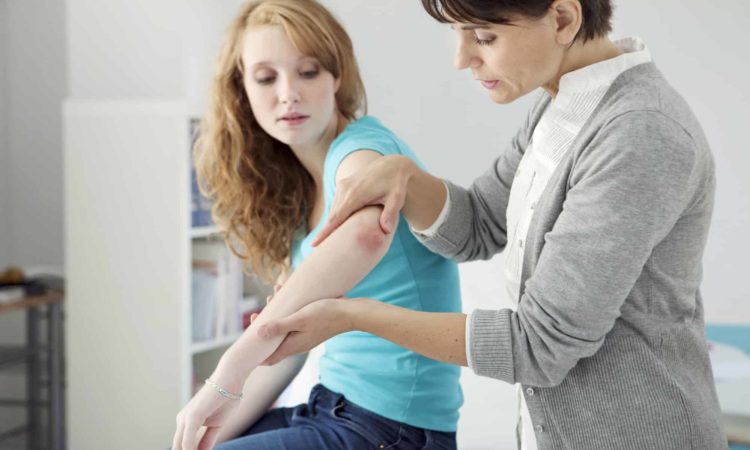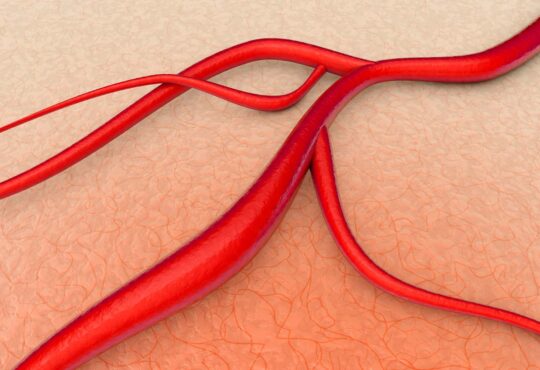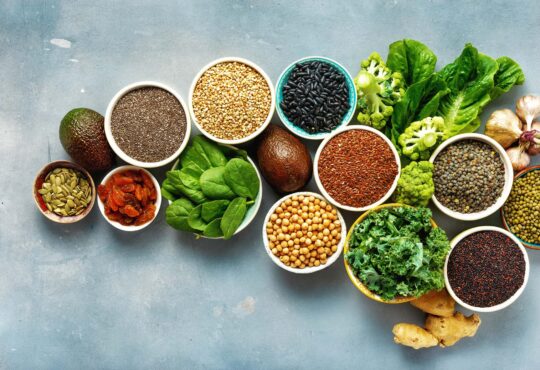
One of the most frustrating medical conditions is psoriasis vulgaris.
By itself, it’s not dangerously life-threatening, but it can be highly unpleasant – causing itching and pain. Also, it is associated with increased risk of such serious illnesses as psoriatic arthritis, obesity, Type 2 diabetes, high blood pressure, cardiovascular disease and other autoimmune disorders.
It’s not contagious, though its appearance may repel other people.
Science hasn’t yet figured out exactly what causes it. It appears to be genetic, but you can go many years without any symptoms. Then something triggers it, and your immune system begins attacking healthy skin cells.
There’s no *official* cure, though medicines can treat the symptoms. Some psoriasis medications can cost over $100,000 a year.
One – cyclosporin – is not expensive, but increases risk of kidney damage, high blood pressure and cancer.
With “cures” like that, who needs disease?
Topical steroids are often applied to the affected areas, but in the long run their use is associated with rosacea, skin atrophy and glaucoma.
Psoriasis one of the most common skin diseases around the world, attacking 2-3% of the population.
What is Psoriasis
Symptoms include:
* Scaly rashes – maybe red or purple
* Dry, cracked skin – may bleed
* Pain, burning and itching
The rashes may be cyclic, flaring up and then subsiding.
The most commonly affected areas are elbows, knees, scalp and nails.
Although the symptoms vary, they all clearly have a common root: inflammation.
If You Have a Family History of It, Try to Avoid These Triggers:
* Heavy alcohol consumption
* Smoking and exposure to secondhand smoke
* Cold, dry air, especially in winter
* Strep infections
* Certain medications, including medicines for high blood pressure
Topical Treatment
It’s only natural psoriasis patients want to find the “magic bullet” to rub on their rashes to make them go away.
The most obvious candidate is aloe vera.
Aloe vera creams are popular in alternative medicine. They’re somewhat overhyped – aloe doesn’t do everything people claim, and can make wound healing worse.
But it is an anti-inflammatory that soothes itchy, sunburned skin.
In 1996, a team of researchers tested aloe cream (0.5%) against a placebo on patients with psoriasis.
After 16 weeks, 83.3% of the aloe group experienced so much significant improvement they were called cured.
The placebo group’s cure rate was just 6.6%.
Nobody in the aloe-treated group displayed any adverse effects, so aloe is safe.
Another study compared the effectiveness of aloe against triamcinolone acetonide, a topical steroid medicine. The aloe proved more effective.
However, in another study, applying aloe improved 72.5% of those patients, but 82.5% of the placebo group also improved.
Harness the Power of Suggestion
That may have enormous implications. I’m just speculating here, but our immune systems are closely tied to our nervous systems. Therefore, maybe those 82.5% believed in the placebo cream so much, it modified their immune systems, reducing its attacks on their skin cells.
The standard, organized way to harness the power of suggestion is hypnosis – and some scientific studies have found hypnosis can help psoriasis patients.
This also aligns with the practical observation that psoriasis is closely associated with emotional stress. Therefore, tools that help you develop the ability in your prefrontal cortex to lower your stress reactions could help control psoriasis too.
NOTE: If you decide to go to a hypnotist, make sure they’re a highly qualified professional.
In General . . .
Psoriasis sufferers can’t (yet) change their genes.
However, anything that does these two things may help control and alleviate psoriasis:
* Balance the immune system, so it attacks infections, not your own healthy cells
* Lower inflammation
Your Diet is a Major Factor for Inflammation
In general, animal products and processed foods cause inflammation. Whole plant foods reduce it.
In one published case study, a woman in her late 50’s had a 35-year history of psoriasis medical science could not control. 40% of the entire surface of her skin was red and inflamed.
On the advice of her doctor, she went on a strict anti-inflammatory diet.
Within a year, her skin was 100% clear.
One potential cause for this diet’s effectiveness: it’s low in salt.
Researchers are coming to believe excess sodium in Western diets triggers your immune system to attack your own cells – which accounts for the high – and growing – amount of autoimmune disease in the United States and other parts of the developed world.
Psoriasis in one of those autoimmune diseases.
Salt-related inflammation may also come from its effect on the kidneys. A high-salt diet overworks your kidneys, and that too triggers inflammation.
Also, plant foods contain potassium – and a deficiency of that is inflammatory.
Other Lifestyle Choices May Alo Help You
1. Regular, moderate exercise reduces overall inflammation.
The National Psoriasis Foundation recommends psoriasis patients do at least 30 minutes of moderate exertion, plus strength training, five times per week.
2. 7-9 hours of sleep every night.
This is a challenge for psoriasis sufferers because frequently their condition is so uncomfortable they can’t sleep well.
3. Meditation, self-hypnosis and breathwork
These can all help you get a grip on your emotions, reducing stress and the inflammation it causes. Done just before bedtime, it may also improve sleep quality.
4. Eat lots of fiber and fermented foods.
The health of your gut microbiome greatly affects and controls your immune system.
5. Eat plenty of anti-inflammatory spices.
These include cloves, rosemary, turmeric, and ginger.
Summary
Anything that improves your overall health in probably anti-inflammatory, so it will also relieve your psoriasis.
Unhealthy lifestyle choices are pro-inflammatory, and so may increase your psoriasis.
https://nutritionfacts.org/video/potassium-and-autoimmune-disease/
https://nutritionfacts.org/video/which-spices-fight-inflammation/
https://www.youtube.com/watch?v=KZHYiYEVSyI
https://nutritionfacts.org/video/sodium-and-autoimmune-disease-rubbing-salt-in-the-wound/
https://www.ncbi.nlm.nih.gov/pmc/articles/PMC3511390/
https://nutritionfacts.org/video/anti-inflammatory-diet-for-lupus/
Maldonado-Puebla M, Price A, Gonzalez A, Fuhrman J, Nichols A. Efficacy of a Plant-Based Anti-Inflammatory Diet as Monotherapy in Psoriasis. IJDRP. 2019;1(1):7.
https://www.healthline.com/health/aloe-vera-for-psoriasis
https://nutritionfacts.org/video/aloe-vera-for-psoriasis/
https://www.mayoclinic.org/diseases-conditions/psoriasis/symptoms-causes/syc-20355840
Syed TA, Ahmad SA, Holt AH, Ahmad SA, Ahmad SH, Afzal M. Management of psoriasis with Aloe vera extract in a hydrophilic cream: a placebo-controlled, double-blind study. Trop Med Int Health. 1996;1(4):505-509.
Paulsen E, Korsholm L, Brandrup F. A double-blind, placebo-controlled study of a commercial Aloe vera gel in the treatment of slight to moderate psoriasis vulgaris. J Eur Acad Dermatol Venereol. 2005;19(3):326-331.
Choonhakarn C, Busaracome P, Sripanidkulchai B, Sarakarn P. A prospective, randomized clinical trial comparing topical aloe vera with 0.1% triamcinolone acetonide in mild to moderate plaque psoriasis. J Eur Acad Dermatol Venereol. 2010;24(2):168-172
https://www.hmpgloballearningnetwork.com/site/thederm/site/cathlab/event/mind-body-psoriasis-treatments
https://pubmed.ncbi.nlm.nih.gov/10396014/
Maldonado-Puebla M, Price A, Gonzalez A, Fuhrman J, Nichols A. Efficacy of a Plant-Based Anti-Inflammatory Diet as Monotherapy in Psoriasis. IJDRP. 2019;1(1):7.
https://www.medicalnewstoday.com/articles/exercise-and-psoriasis
https://nutritionfacts.org/video/sodium-and-autoimmune-disease-rubbing-salt-in-the-wound/







